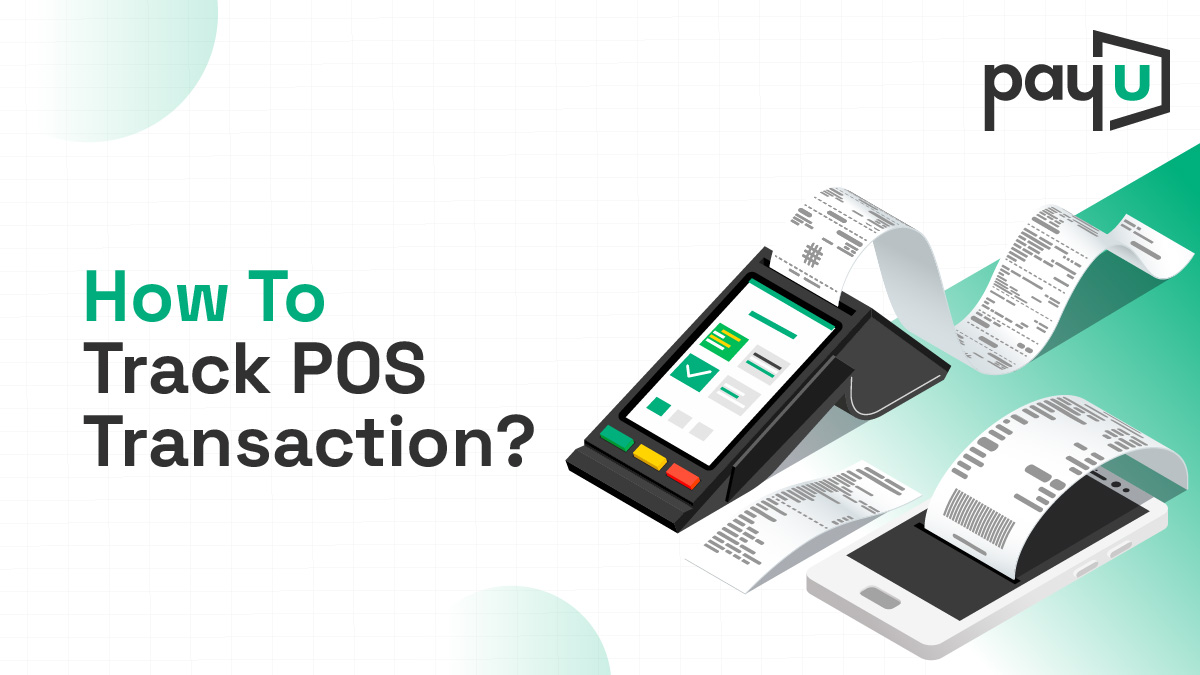
Today, with the development of advanced software and hardware technologies, most business owners in India prefer storing all their business records digitally, as it is safe and reliable, and it helps them save a significant amount of resources. As the retail business world continually evolves, business owners are focusing heavily on gaining vital insights into customer behaviour and analysing sales trends. This is where the POS (Point of Sale) transactions play an important role, offering business owners the ability to track their POS transactions, maintain accurate financial records, and make informed financial decisions.
As a business owner in India, whether you run a small retail store or a large enterprise, you likely receive and process numerous online payments every day. It is also important to understand how to track online transactions made through a POS machine. In this guide, we explore the importance of tracking point-of-sale (POS) transactions, how to do it, and other details.
What is a POS transaction?
POS transaction is the process where a transaction takes place from a customer’s preferred payment mode, typically using electronic systems like a debit or credit card, or a mobile device, to the merchant in exchange for the product or services through a POS software. This process typically takes place in person at the business outlet, but it can also occur online or through mobile payment systems.
POS transaction is a convenient way to process payments for both the business owner and the customer. For businesses, it enables the owner to track product and service sales, manage inventory, and provide customers with a transaction record. For customers, POS transactions offer a convenient and quick way to make payments.
How to Track POS Transactions?
As a business, it is essential totrack POS transactions, and the process is quite simple, too. It involves recording and tracking all sales and return proceeds through the POS system. This includes:
1. Recording important transaction details, including date, time, number of items sold, price of each item, taxes, discounts, and payment methods.
2. Updating inventory levels in real-time as the items are sold and returned.
3. Generating receipts and invoices for the customers
4. When you track transactions done through POS systems, it is important to keep the transaction data safe and secure for reporting and analysis in the future
For effective POS transaction ID tracking, you must have a robust POS system that integrates hardware components, such as barcode scanners, cash drawers, and bill printers, with software that manages sales, customer data, and inventory. The POS software records each transaction as it occurs in real-time, and you can easily access it at any time.
Importance of keeping track of POS transactions
Now that you know how to track POS transactions, it would be helpful to understand why you should keep track of them. As a business owner, it offers several benefits, including:
- Processes the payment in a secure manner
The POS systems are designed to process payments in a secure manner. And you can assure your existing and prospective customers that their sensitive data is protected, and there is zero risk of fraud. By keeping track of the POS transaction, you can verify that the transaction is completed correctly, identify suspicious transactions, and resolve disputes with the customer or the bank (if necessary).
- Comply with legal and regulatory requirements
As a business owner, it is your primary responsibility to comply with various legal and regulatory standards applicable to your business. Additionally, an online POS transaction ID status check can also assist you in this regard. By keeping track of POS transactions, you can comply with tax laws, accurately report sales and taxes collected, provide receipts and refunds to customers promptly, and adhere to Payment Card Industry Data Security Standards (PCI DSS) for protecting cardholder data.
Read more – How to Avoid Legal Issues While Starting a New Business?
- Be abreast with POS technology
As POS technology continues to evolve, as a business owner, you must stay informed and up-to-date with the latest technology to remain competitive in the market and conduct your business efficiently. Modern POS systems come with advanced features for tracking POS transactions, including real-time inventory management across different locations, cloud-based reporting and data storage, integration with e-commerce platforms, and accounting software.
Best practices for POS transaction tracking
To optimise the POS transaction tracking process, you must follow these best practices:
1. Train your staff well on how to use the POS system correctly and consistently
2. Implement strict procedures and protocols for cash handling and ensure that you do regular cash drawer checks
3. Integrate your POS system with inventory management software and accounting software so that you can check transaction status in real-time and manage the inventory
4. You must set up an automated alert for low stock levels and suspicious or unusual transaction activity
5. It is best advised to generate a daily, weekly or monthly sales report to monitor the sales performance and trends and make necessary business decisions accordingly
6. Check the POS data back-up regularly and store it in a secure manner for disaster recovery
7. Update the POS software regularly to keep the system running efficiently and securely
Conclusion
Tracking POS transactions is a critical part of the business management process. By implementing a robust POS system and establishing best practices, you can ensure accurate financial records, optimise inventory management and make data-driven business decisions.